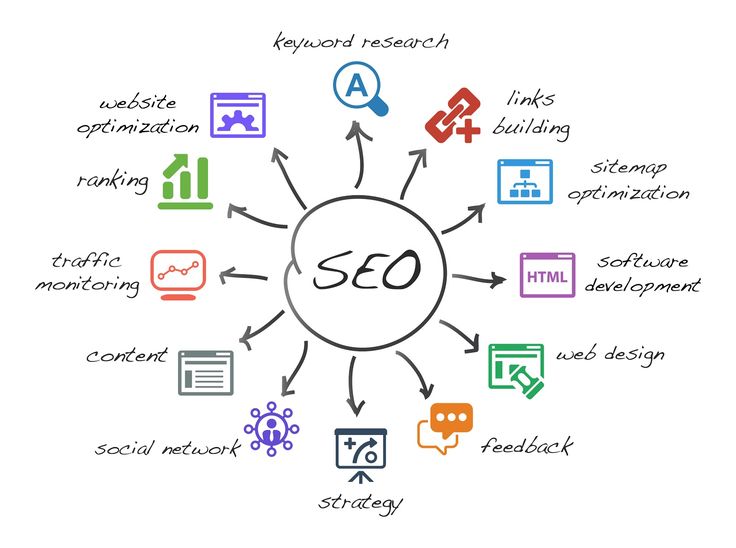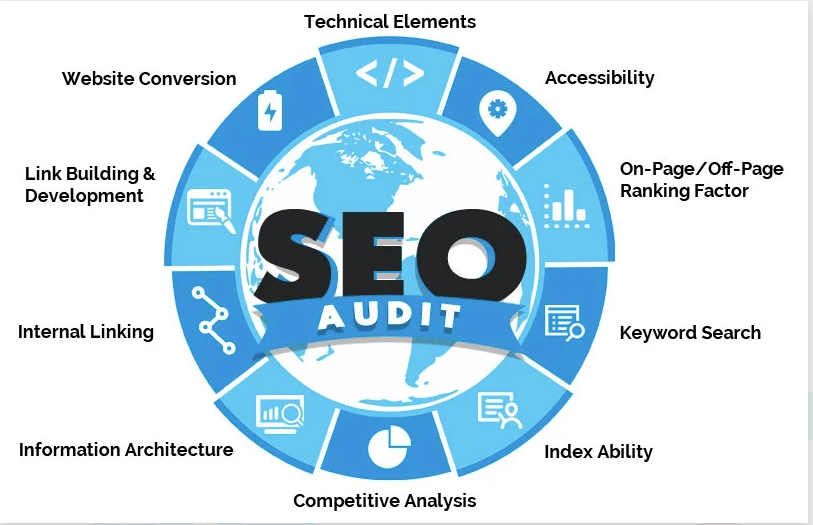The SEO cloud market is booming alongside the SaaS industry, which experts project will hit $1.23 trillion by 2032. We discovered that a simple yet crucial factor was at play. Your website’s speed can make or break your success – just a one-second delay cuts conversion rates by 7%.
SEO cloud platforms work differently from traditional web hosting. Instead of using one physical server, they spread their website across multiple servers. This smart approach keeps your site running smoothly, even if a server encounters trouble. Your website remains fast, regardless of the traffic volume, because cloud hosting automatically adjusts resources to match your needs.
This piece shows you how cloud platforms can boost your website’s performance and why they’re becoming a must-have tool to succeed in modern SEO.
How cloud platforms improve SEO performance

Cloud platforms have transformed the way websites are hosted and managed for SEO performance. Your search rankings and user engagement metrics will benefit from multiple servers working together.
Faster page load times and lower bounce rates
Speed can make or break your website. A one-second delay in page loading reduces conversion rates by 7%. Traditional hosting with a single server often fails to handle high-traffic periods, which frustrates visitors.
Cloud hosting fixes this by spreading the load across multiple servers that share resources. Your pages will load much faster with this resource-sharing approach. Studies show that switching to cloud servers can boost page loading speed by up to 50%.
User behaviour changes drastically with faster loading times. Visitors stay longer and interact more with your content when pages load quickly. The BBC discovered that they lost 10% of their users for each additional second their pages took to load. Additionally, Walmart’s conversions increased by 2% after reducing page load time by just one second.
Better uptime and reliability for search engines
Your website’s uptime affects both user experience and search engine performance. Search engine bots might flag your site as unreliable or deindex pages if it goes down too often. Users rarely return to a website that is frequently down, resulting in lost traffic and revenue.
Cloud hosting gives you excellent uptime guarantees through built-in redundancy. Other servers in the network take over immediately if one fails. This failover system ensures your website remains available nearly 100% of the time. Most reliable cloud hosts promise at least 99.99% uptime.
Search engines give higher rankings to reliable websites. Google’s crawlers prefer websites they can access and index consistently without interruptions.
Improved crawlability with scalable resources
Search engine bots must crawl your website efficiently to index your content properly. Pages won’t rank without being crawled and indexed first. Cloud platforms offer several benefits to optimise crawlability:
- Resources adjust automatically during busy periods so that bots can access your site even during traffic spikes
- Performance stays steady, whatever the traffic volume, which helps maintain crawl efficiency
- Automatic scaling stops server overloads that could block crawler access
Your content visibility in search results improves when search engine bots can crawl your site efficiently. Cloud-based SEO platforms have become crucial tools for websites that want to optimise their technical SEO foundation.
The role of cloud hosting in technical SEO

Your SEO cloud strategy’s physical infrastructure has a bigger influence than you might expect. Server-side factors significantly influence how search engines interact with your site, making them crucial for technical SEO.
How server location affects SEO
Your website’s performance and search rankings depend on the location of your servers. Loading times and latency change based on the distance between your server and users. Your site will respond faster, and users will have a smoother experience when servers are closer to your target audience.
Google’s search algorithms consider numerous factors. These include website relevance, usability, and your server’s physical location. Google now prioritizes ccTLDs (country code top-level domains) over server location. Yet, where your server sits still matters a lot for site speed and response times.
Websites targeting global audiences require servers in multiple regions. Research shows that mobile visitors won’t stick around if your site takes more than 3 seconds to load – 53% of them will leave.
Using CDNS and edge networks for speed
Content Delivery Networks (CDNs) are the foundations of a good SEO cloud setup. These networks keep cached copies of your website on servers around the world. Users who visit your site receive content from the nearest server, which significantly reduces latency.
CDNS offers these technical benefits:
- Content loads faster from nearby servers
- Search engine bots can crawl better
- Failover options make the system more reliable
Edge SEO takes this idea further. You can apply technical SEO recommendations through serverless applications on CDNS. It allows you to change your website without modifying the core code, which is particularly helpful for platforms like Shopify that have restrictions.
Managing bandwidth and traffic spikes
Bandwidth limitations can significantly impact your SEO performance. Your site slows down, latency increases, and responsiveness drops during busy periods when bandwidth isn’t. Search engines may view this as poor management when sites repeatedly exceed their bandwidth limits.
Cloud hosting fixes this by scaling automatically when traffic surges. Traditional hosting struggles with traffic spikes, but cloud platforms dynamically add or remove resources as needed to prevent bandwidth issues. It means your website continues to run smoothly, even during viral moments or sudden popularity spikes.
This ability to scale ensures your site remains available to users and search engine crawlers. Your SEO momentum remains strong, regardless of how much your traffic fluctuates.
Automation and scalability with SEO cloud platforms
Cloud computing and automation are changing how SEO professionals manage their resource-heavy tasks. Teams can now run processes that were too expensive or impossible on regular computers by exploiting cloud technology.
Running large-scale crawls and audits
Cloud-based crawling has revolutionized site auditing. Screaming Frog’s cloud system allows me to use a single license for multiple crawls simultaneously, keeping my computer free. A real case demonstrated how it crawled 3.1 million URLs in two days, incurring cloud fees of less than £20. OnCrawl’s system can quickly scale from 10 to 750 pods to handle massive JavaScript crawls.
The real advantage? My laptop handles quick checks while bigger crawls run in the cloud simultaneously. No more leaving computers on overnight – the cloud does all the work.
Automating keyword tracking and reporting
Cloud platforms shine at handling repetitive SEO reporting tasks. Today’s services offer:
- Scheduled, white-label reports sent straight to clients
- Reports in multiple languages (some with 13 language options)
- API access that connects with other tools
A satisfied SEO professional said, “With ProRankTracker, we receive real data every day in our email, eliminating the obsession with specific keyword rankings. We now see the bigger picture.” AWR users appreciate that “you won’t pay extra for being successful and bringing in more clients.”
Scaling SEO tools without local limitations
Cloud’s flexibility makes it ideal for scaling SEO operations. Google’s Compute Engine enables you to deploy powerful machines as needed and process large amounts of data quickly. OnCrawl users seamlessly combine crawl data with logs, rankings, and analytics.
Cloud scalability helps growing businesses thrive. Services adjust resources automatically as traffic increases, preventing slowdowns during busy periods. This smart resource management enables users and search engine bots to access your site smoothly, maintaining your SEO momentum regardless of traffic levels.
Choosing the right SEO cloud platform

Selecting the right SEO cloud platform requires considering several key factors. The ecosystem is constantly evolving, and you need to identify the differences between providers to optimize your website’s performance.
Key features to look for
Your focus should be on platforms with complete capabilities. You’ll need keyword research and rank tracking tools, page-level SEO analysis, content optimisation features, and backlink analysis. Up-to-the-minute site crawls add great value. Many enterprise platforms conduct daily audits, while others provide technical data in real-time.
The platforms should have resilient content marketing tools that analyse topics against competitors and spot important gaps. Search coverage across borders has also become vital. Most enterprise platforms now support multiple languages and alphabets.
Popular platforms: AWS, GCP, Azure
AWS, Azure, and GCP dominate 64% of the cloud market share. Each platform stands out in its own way:
- AWS leads with the most data centres (33 regions with 105 availability zones) and services
- Azure shines in Windows-based computing and Microsoft service integration, with 64 areas and 126 availability zones
- GCP, though smaller with 40 cloud regions, delivers exceptional networking performance and DevOps-friendly solutions
Security and compliance considerations
Security is the top priority in terms of performance features. You should set up strict two-factor authentication with strong password combinations. Identity and access controls are vital—share proper credentials only with authorised team members.
Geographic restrictions impact the regulatory compliance of your data. European operations follow GDPR rules, while US businesses must meet FedRAMP requirements. Your security measures, regular audits, and vulnerability monitoring must stay strong to maintain compliance.
Cloud security demands attention—a 2022 report revealed that 27% of businesses experienced security breaches in their public cloud infrastructure. Security misconfigurations caused 23% of these incidents.
Conclusion
SEO cloud platforms are powerful tools that enhance website performance by leveraging distributed hosting, automated processes, and intelligent resource management. Our analysis of numerous implementations reveals that websites achieve remarkable speed improvements with near-perfect uptime.
Speed is significant – a 7% conversion drop occurs for each second of delay. Cloud platforms effectively solve this challenge through their distributed architecture and automatic resource scaling.
Security needs equal attention when selecting a cloud platform. AWS, Azure, and GCP offer resilient features; however, your final choice should align with your business needs, compliance requirements, and technical capabilities.
Cloud platforms have revolutionised SEO optimisation approaches. These platforms handle the technical complexities, eliminating the need to deal with server limitations or performance issues. This enables teams to focus on what matters most: creating valuable content and delivering unmatched user experiences that accelerate organic growth.








